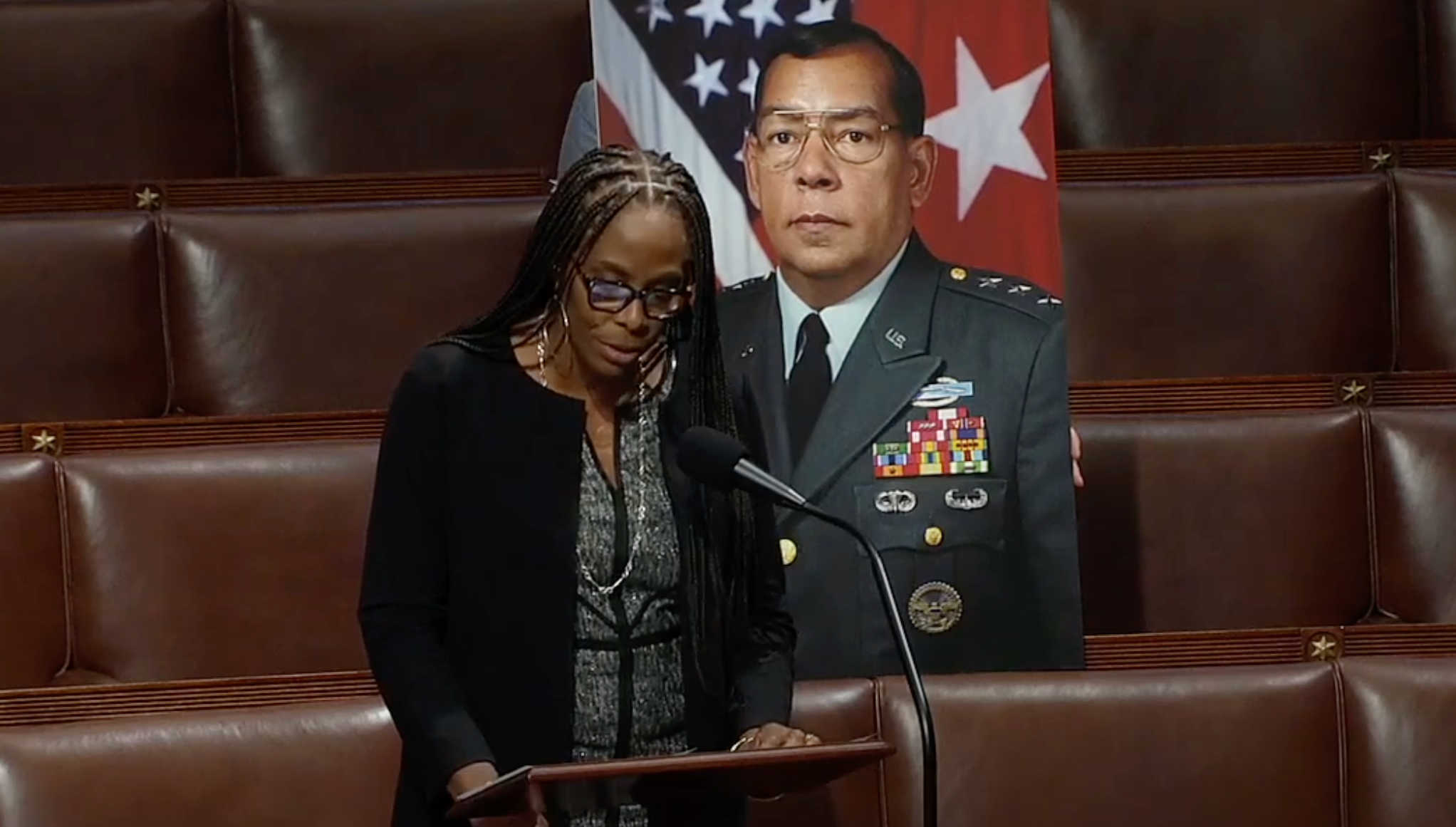Federal
Kadeem Maynard Awaits Sentencing: Lawyers and Family Advocate for Leniency in Drug Case

Kadeem Maynard and his elder counterpart, Oleanvine, stand on the brink of their sentencing. Kadeem’s legal counsel has raised concerns over certain facets of the pre-sentencing review. They have urged the overseeing judge to contemplate a lighter sentence. Earlier in June, the Maynard duo, along with Andrew Fahie, previously holding the position of Premier in the British Virgin Islands, entered a guilty plea over allegations tied to a cocaine-trafficking plot. As part of their commitment, they both agreed to offer their full cooperation with the prosecuting party, in light of a plea bargain which alluded to a potential decade-long sentence.
Recently, between the closing days of July and the initial days of August, the pre-sentencing evaluation reports for both Maynards were presented to the court. On its heels, Kadeem’s lawyers made an official appeal for a sentence modification.
This past April, the U.S. Sentencing Commission opted to institute several alterations to existing sentencing benchmarks. These reforms are set to roll out this coming November. A pivotal amendment was the incorporation of a fresh guideline. This stipulation grants a diminished “offense level” if an accused fulfills particular prerequisites, like having a clean criminal background, and not engaging in violent acts or displaying genuine threats during the crime’s execution. Given the nature of the offense which wasn’t sexually motivated, racially charged, or tied to severe physical harm or death, and didn’t involve firearm dealings, Kadeem seems eligible for a reduced offense level.
Moreover, the legal representatives for Mr. Maynard argue, referencing another segment of the revised guidelines, that non-imprisonment sentences are “typically recommended” when certain conditions, like the one Mr. Maynard meets, are satisfied. Their contention hinges on Kadeem’s clean record, suggesting a variance would be suitable.
On a subsequent update, the defense presented discrepancies in the pre-sentencing document, stressing its failure to propose a “minor role reduction” for their client. They emphasized Kadeem’s restricted involvement in the plot, underlining that he merely connected the DEA’s undercover informant to his mother, Oleanvine, who at the time was the BVI Port Authority’s chief. They adamantly stated Kadeem had no hand in the administrative deception at the port or in the drug consignment logistics.
Most actions in the conspiracy, as per the defense, were primarily driven by Oleanvine and Fahie, not Kadeem. They highlighted Kadeem’s absence in Florida during the cash collection incident that led to Oleanvine and Fahie’s arrest.
To fortify their plea, the defense submitted medical records of Mr. Maynard’s three young daughters, all grappling with ongoing medical needs. They also spotlighted his financial support to another minor child. Supportive letters penned by his family, including a heartfelt one from his spouse, Sherisma Fahie-Maynard, shed light on Kadeem’s remorse and fear of his children’s possible resentment.
Furthermore, Kadeem’s health and academic ambitions were cited. His pursuit of a General Education Diploma has been stalled due to its unavailability at his current detention facility. His entrepreneurial endeavors in Tortola and Baltimore were also mentioned, along with his continuous cooperation with the prosecutors.
A personal letter from Kadeem, conveying his descent into unlawful acts out of desperation to safeguard his family’s residence, accompanied the submissions. In it, he implored for a non-jail sentence, such as probation or home monitoring, to be an active part of his children’s lives.
Contrasting the 11-14 years suggested by the pre-sentencing report, the defense asserts that their client’s eligibility for various reductions should bring the range to approximately 5 years and 10 months to 7 years and 3 months. They contend that Kadeem’s particular circumstances warrant an even reduced sentence.
The verdict on Kadeem’s final sentence is slated for August 21, coinciding with Oleanvine’s judgment day. Meanwhile, the upcoming trial for Andrew Fahie, asserting his innocence, is earmarked for November 1, 2023.
Federal
Plaskett’s Bill to Honor Virgin Islands Hero Passes House

In a notable legislative milestone, Congresswoman Stacey Plaskett successfully led the passage of a bill through the House to rename a post office in St. Croix in honor of a distinguished local military figure.
The bill, designated H.R. 5034, proposes renaming the post office located at 2119 Market Square in Christiansted as the “Lieutenant General Samuel E. Ebbesen Post Office.”
Lt. General Samuel E. Ebbesen, a native of St. Croix, is renowned for his extensive military service, business acumen, and community leadership. His illustrious military career includes commanding the First Brigade, 101st Airborne (Air Assault) Division at Fort Campbell, Kentucky, and the 6th Infantry Division at Fort Wainwright, Alaska. He also served as the commander of the Second U.S. Army at Fort Gillam, Georgia.
Expressing his appreciation for the honor, Lt. General Ebbesen said, “I continue to be humbled by the efforts of Representative Stacey Plaskett and her office to honor my service. Being present to witness us being one step closer to the designation of the Market Square, Christiansted Post Office in my name is truly an honor.”
Ms. Plaskett emphasized the significance of acknowledging Lt. General Ebbesen’s exemplary life and service, stating, “The naming of the Market Square Post Office on St. Croix as the Lt. General Samuel E. Ebbesen Post Office will enshrine his legacy and serve as a testament to the thousands of Virgin Islanders who answer the call to duty in our armed forces. Recognizing Lt. General Ebbesen’s service through this federal building designation is important.”
With its passage in the House, the bill will now move to the Senate for consideration. If approved, it will be sent to President Biden for his signature into law.
Federal
U.S. DOJ Moves to Reschedule Marijuana to Ease Criminal Penalties

The U.S. Department of Justice has announced that Attorney General Merrick Garland has initiated a process to reschedule marijuana from a Schedule I to a Schedule III drug under the Controlled Substances Act (CSA). This proposed rulemaking, submitted to the Federal Register, could significantly change marijuana’s legal status, reduce federal criminal penalties, and acknowledge its accepted medical use in the U.S.
Marijuana has been a Schedule I drug since the CSA was enacted in 1970. On October 6, 2022, President Joe Biden requested a scientific review of marijuana’s classification. Following recommendations from the Department of Health and Human Services (HHS) in August, Garland sought legal guidance from the Justice Department’s Office of Legal Counsel (OLC). Based on HHS’s findings and OLC’s advice, the Attorney General has now begun the rulemaking process to reclassify marijuana.
Rescheduling a controlled substance involves a formal procedure that includes public notice, an opportunity for comment, and an administrative hearing. During this process, the Drug Enforcement Administration (DEA) will collect and review public input to make a final determination. Until then, marijuana remains a Schedule I substance.
Historically, marijuana’s classification has faced numerous legal challenges and petitions for rescheduling. Initially classified as Schedule I, marijuana was deemed to have a high potential for abuse, no accepted medical use, and a lack of safety under medical supervision. Despite various attempts to change this status, the DEA has repeatedly denied such requests, adhering to its five-part test for determining a drug’s “currently accepted medical use” (CAMU).
The recent HHS recommendation was based on a two-part inquiry: assessing whether licensed healthcare providers widely use marijuana for medical purposes and whether there is credible scientific support for at least one medical use. HHS concluded that marijuana meets these criteria, supporting its reclassification to Schedule III.
This potential rescheduling raises several legal and regulatory questions. An April 2024 memorandum from the OLC stated that the DEA’s current approach to determining CAMU is too narrow. The OLC asserted that HHS’s two-part inquiry is sufficient to establish CAMU and emphasized that DEA must give significant weight to HHS’s scientific and medical determinations in the rulemaking process.
Additionally, the memorandum addressed compliance with the Single Convention on Narcotic Drugs and the CSA. It concluded that neither mandates marijuana’s placement in Schedule I or II, and that DEA can meet international obligations by rescheduling marijuana to Schedule III with appropriate regulatory controls.
The rulemaking process will include public participation, with opportunities for comments and a hearing before a final decision. The outcome could change marijuana’s classification, impacting its legal status and medical use availability in the United States.
Federal
Court Decision Paves Way for Integration of Caneel Bay Resort into National Park

A pivotal ruling from a U.S. Circuit Court judge has mandated the transfer of ownership of the Caneel Bay Resort’s buildings and infrastructure to the U.S. Department of the Interior. This decision enables the National Parks Service to proceed with the redevelopment of the iconic resort.
The legal tussle over the rightful ownership of the property began in 2022, involving EHI Acquisitions LLC and the United States Government. Originating from a unique ownership arrangement crafted between 1977 and 1983, the Caneel Bay Resort was built on a 150-acre tract that was part of a larger 5,000-acre donation to the National Park Service by philanthropist Laurance Rockefeller. While the land was deeded to the National Parks Service (NPS), the buildings remained under the ownership of Rockefeller’s company via a “retained use estate.” This arrangement included an indenture with a reversion clause, offering the government the option to acquire the resort buildings at no cost—otherwise, the land would revert to the resort’s owner.
The legal dispute intensified when EHI, having acquired the retained use estate, claimed full ownership of both the land and resort buildings after the government declined a 2019 offer to assume ownership. EHI interpreted this “offer” as a sales proposition, whereas the government viewed it as a no-cost conveyance.
Judge Cheryl Ann Krause clarified this discrepancy in court, affirming the documents’ explicit intention for the land and improvements to be gifted to the government for a nominal fee of $1, as stipulated in the 1983 indenture. She stated, “To keep the land, the Government would have to accept the offer of the improvements. But if that offer were conditioned on payment, then the Government’s retention of that land, in effect, would also be conditioned on payments…meaning it would no longer be a gift.”
Judge Krause further underscored the non-commercial nature of the transaction, reflecting on the indenture’s clear direction for the integration of the Caneel Bay Resort into the Virgin Islands National Park, aligned with both parties’ philanthropic objectives.
Despite EHI’s arguments that the government intended to spend significantly to re-acquire the resort and their attempt to redefine “offer,” the court found these points unconvincing. Judge Krause dismissed these claims and awarded summary judgment to the United States, confirming that since no valid offer was made by EHI before the expiration of the retained use estate on September 30, 2023, the land’s title remains with the U.S. Government.
This ruling confirms that the government not only retains ownership of the land but also gains title to the resort’s structures, with EHI planning to appeal the decision. This marks a significant step towards the full integration of the Caneel Bay Resort into the national park system, reflecting the original intent of its benefactor.
-

 Education1 year ago
Education1 year agoEducation Board Seeks Input on Schools Through Comprehensive Survey
-

 Education2 years ago
Education2 years agoCTE Board Enthusiastic About New Curriculum Standards, Yet Anxious Over Apprenticeship Support
-

 Crime2 years ago
Crime2 years agoRegistered Sex Offender Detained for Illegal Firearm Possession During Annual Surveillance Drive
-

 Videos3 years ago
Videos3 years ago2022 Gubernatorial Election: Voters Speak Out
-

 Development1 year ago
Development1 year agoCosts Surge as Donoe Estates Housing Project Resumes with New Contractor
-

 Videos3 years ago
Videos3 years agoGubernatorial Teams Celebrate St. Croix’s Bull & Bread Day
-

 Videos3 years ago
Videos3 years agoWakanda’s Female Might: A Dive into ‘Black Panther: Wakanda Forever’
-

 Crime2 years ago
Crime2 years agoSt. John’s Westin Resort Scene of Armed Robbery, Prompting Heightened Police Vigilance




